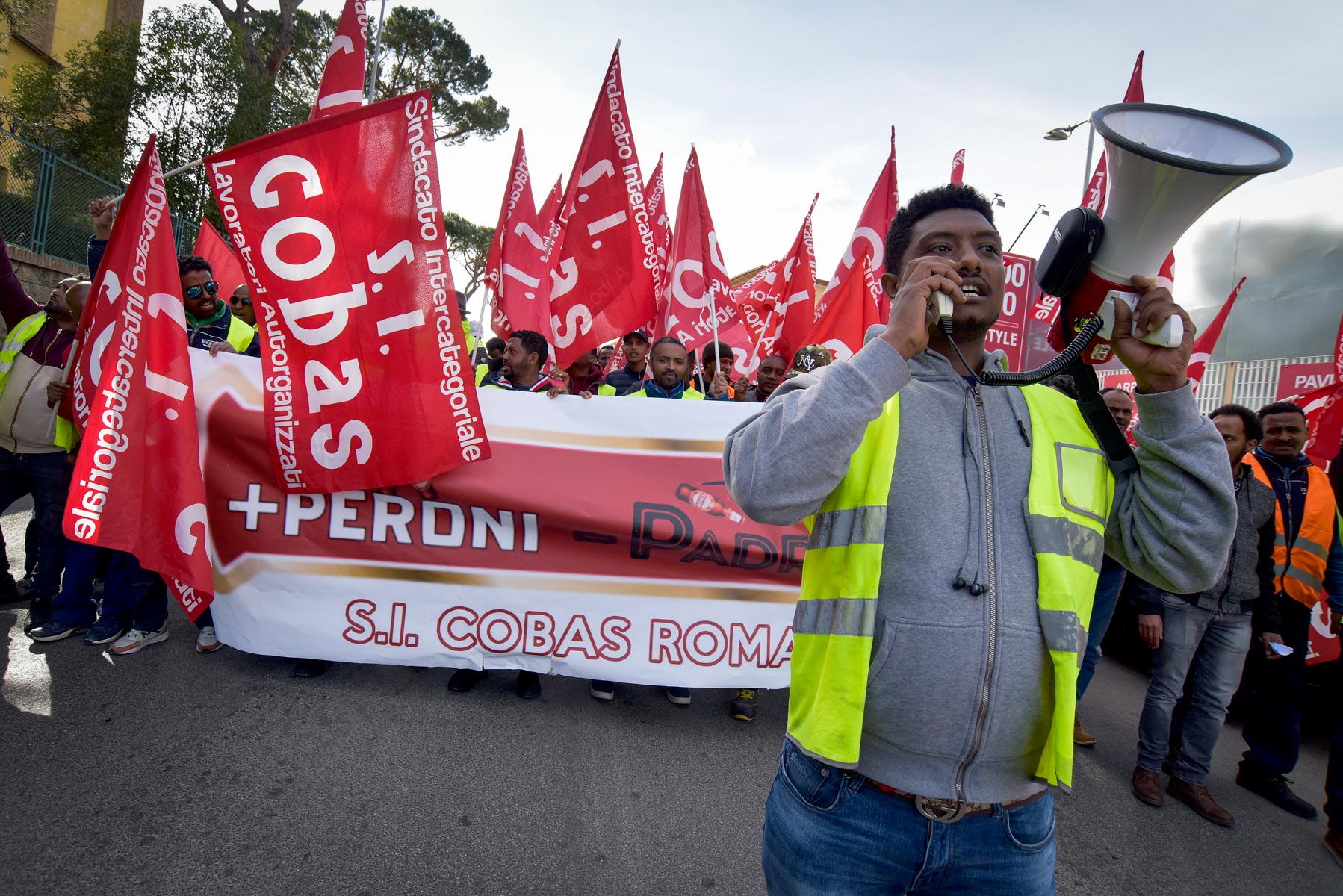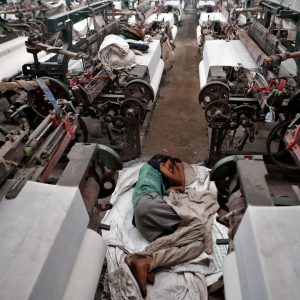How Covid-19 has affected vulnerable people in Italy
Italy, once the epicentre of Covid-19 in Europe, has seen many of its residents affected by the pandemic. But migrants, homeless and elderly people, and women in abusive relationships have been har…
Author:
21 May 2020

Six years ago, Musa Badamosi*, 33, left his job as a primary school teacher in The Gambia to become a student. He wanted to discover what life north of the Mediterranean Sea had to offer. Badamosi, who now lives in Italy, has learnt that the image of the European dream that he envisioned back home doesn’t reflect the reality.
Thousands of migrants come to Italy in search of a better life. In most cases, they wind up at the bottom of the totem pole, as the invisible people who do jobs like harvesting the fruit and vegetables that end up on everyone’s tables. Badamosi, who hasn’t been able to get documents, is no exception.
“The first judge who took my case died, the second retired before wrapping it up and the third one gave me a negative response,” Badamosi said. “I appealed against this decision. I’ve never caused trouble … What should I do to get documents?
Related article:
“Without documents, it’s very hard to find a stable job and get a solid income. Since the [Covid-19] pandemic broke out, I haven’t even been able to work, and I’m not sending money to my family. What will my wife say? Will she file for divorce?”
Since his arrival in 2014, Badamosi has looked for a way to improve his education to facilitate his integration, but this has been out of his reach. There was therefore no other option than to join the ranks of migrants working in the agricultural sector.
This phenomenon is known in Italy as caporalato, which in essence means exploiting cheap labour. The entrepreneurs in the supply chain and the caporali – the foremen in charge of recruiting workers – take advantage of undocumented migrants and refugees because of their instability and desperation. Long hours of work, ridiculous wages, short-term contracts and no insurance cover characterise their existence and fuel the fire of their agony.
“Sometimes I regret having left my country, but what can I do now?” says Badamosi, with his umpteenth unanswered question.
‘Cosmetic resolutions’
Since immigration numbers increased in the late 1980s, the Italian government has failed to take care of migrants. The exception has been when pickers were needed to sweat in fields all over the country, just like in the current situation, where there’s a huge unavailability of labour in farming. This explains why a deal with Romania to bring workers in despite the travel restrictions was discussed and a new, mass regularisation – the sixth since 1986 – has been voted. The regularisation will impact half of the around 600 000 undocumented migrants who are now based in Italy.
Related article:
“A sectoral regularisation, like the one that the government is debating, won’t be effective. This is a chance every illegal migrant should get, otherwise many of them would surrender themselves to the criminal organisations,” says Marco Paggi, a member of the Association on Legal Studies for Immigration that specialises in labour law.
“That’s why we had proposed a wider regularisation. We all know that many employers would still hire migrants off the books, so we also had suggested to regularise migrants who currently don’t have a job to allow them to find one and prevent the mobsters to get to them,” he adds.
Despite his commitment, Paggi can’t stay positive as he recalls a scene from a 2012 parliamentary committee in which he participated. “The politicians I was talking to didn’t have a clue of what I was saying. The widespread thought within the institutions is that criminals are those who deal and steal, not those who exploit workers. After the session, only one of them told me that he found our proposals to be valuable, but that all the decisions they take are cosmetic resolutions made for political sake.”
No homes to stay inside
Homeless people – many of them migrants – are usually among those who are not even considered for political sake.
At first sight, the coronavirus seemed to unite and bring everyone together. Then, as the days went by, substantial disparities arose and reminded us that we are not all equal. The pandemic is, rather, exacerbating our differences. The “I stay at home campaign” that Prime Minister Giuseppe Conte launched when Italy was forced into lockdown on 9 March must have seemed ridiculous or even felt offensive to those who have no home. Today, there are about 50 000 homeless people in Italy, according to the National Institute of Statistics.
In the eastern coastal city of Ancona, in the Le Marche region, Remo Baldoni, 76, and his grey Fiat van provide the homeless with food, clothes, blankets and “whatever they need”.
“I always put myself in their shoes and think of what I would look for if I lived on the street, so I also bring them cigarettes and some money to get a coffee,” he says.

Baldoni is the president of Servizio di Strada Onlus Ancona (Road Service Onlus Ancona), a non-governmental organisation that has been taking care of the homeless since 2006. “They are the ones who give me the strength to move on,” says Baldoni, pointing out that he wanted the volunteers of his association to stay at home to avoid contracting the coronavirus.
“I’m alone now, but I’m not afraid of the virus. The homeless ask me to protect myself, because without me they would be lost … My privileged status fades away when I’m with them. There’s a relationship of trust and loyalty between us.”
Obviously, the pandemic turned it into a more fleeting relationship. “Before the coronavirus changed our lives, I always stopped some time to chat and play games with them. Now I can’t, I give them what they need, we exchange a few words and I leave. Since I started this journey, I have met a wonderful world populated by extraordinary people. I met well-educated people and many polyglots, and I feel richer thanks to them.”
Retirement homes
The Italian government didn’t pay close attention to older people staying in retirement homes. According to the third report on retirement homes released by the Higher Health Institute on 14 April, 6 673 elderly people died between 1 February and the day of publication. Of those deaths, 40% were related to Covid-19, a figure that turns old-age homes into one of the major outbreaks of this pandemic. Many prosecutors throughout Italy started looking into the matter, with 70 investigations in Turin alone.
To reduce the impact on elderly people, some provinces in the Lombardy and Le Marche regions called on Doctors Without Borders (MSF) for help. A team of specialists in handling epidemics signed an initial agreement with the Le Marche Single Regional Health Company’s department of Ancona to set up a support system for social workers in nursing homes.
Related article:
“We mainly work on containment and prevention,” says Tommaso Fabbri, the MSF project manager in Ancona. “We try to pass on our knowledge about how to properly use the personal protective equipment in order to protect both the social workers and the patients. Then we focus on the ‘dirty-clean circuit’, because the social workers move between positive and negative patients. So identifying ‘dirty’ and ‘clean’ areas is fundamental to prevent the spread of the virus,” Fabbri adds.
Domestic violence
There is another virus that hasn’t stopped spreading in recent months: violence, especially towards women who were already in abusive relationships.
During the lockdown those women were forced to spend almost all their time with their abusers. So requests for help from anti-violence centres increased significantly, up by 75% compared with March-April in 2019, according to the Online Women Against Violence, or DiRe, network.
“Actually, we registered an increase of contacts via chat, because obviously women have less chances to speak freely,” says Simona Bernardini, the head of female psychologists at Telefono Rosa (Pink Phone), a voluntary association founded in 1988 that provides psychological support and legal advice to women who are victims of violence.
“We usually receive the women in our studio in Rome, but since we are currently working from home, we have also been able to provide help to women outside our region,” says Bernardini, highlighting that latency time between violent attacks has narrowed remarkably.

“The stage when the women realise that something bad could happen has almost vanished during the lockdown, there’s a constant feeling of tension and partners use violence much more often.”
At the same time, “third-party requests” have been increasing in number. “Many concerned parents, relatives and friends call us to ask how they can help. We tell them not to intervene sharply, but to listen to the victims. That is what we do as professionals.
“We don’t intervene, because women who are victims of violence need to be heard and to be told what options they have, but above all they need to be allowed to express their emotions. We leave room for the containment of fear, doubt and distress, and then build a new thought starting from there,” says Bernardini, adding that “counselling means restoring value to the emotions the women experience”.
*Not his real name because of fear of deportation



